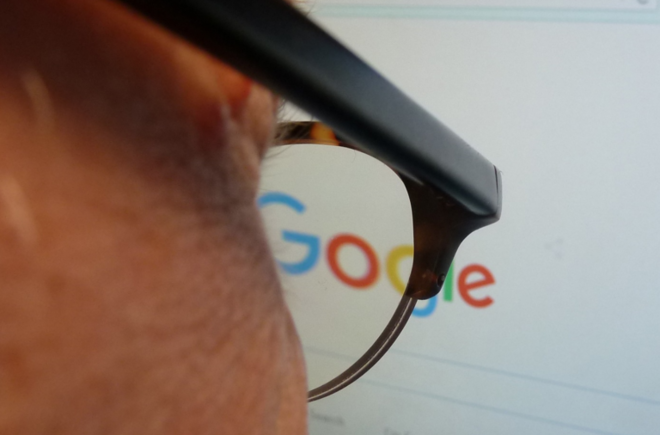6 new mental illnesses brought to you by the internet
The internet is a buffet of games, social media, messaging and pornography. But it might also be daily driving you to the brink of insanity. As the internet becomes a part of your daily life, a rise in the number of distinct mental disorders directly tied to use of digital technology. Some are new versions […]


The internet is a buffet of games, social media, messaging and pornography.
But it might also be daily driving you to the brink of insanity.
As the internet becomes a part of your daily life, a rise in the number of distinct mental disorders directly tied to use of digital technology.
Some are new versions of old afflictions rebranded for a digital age, or they can be wholly new creative. And you may have felt a tinge of at least one of the.
They can be benign or destructive, and were not even recognised by the medical community until now. But the digital world is taking notice, after this article first appeared in TechHive and PcWorld.
 |
Phantom ringing syndrome
You know when your brain fools you into thinking your phone is buzzing in your pocket? You reach for it and find it is silent or not even there. You might be delusional but not alone.
“We’ve probably always felt slight tingling in our pocket. A few decades ago we would have just assumed it was a slight itch and we would scratch it,” Dr. Larry Rosen, author of iDisorder told TechHive.
“But now we’ve set up our social world to be tied to this little box in our pocket. So, whenever we feel any tingling in our leg we get a burst of neurotransmitters from our brain that can cause either anxiety or pleasure and prompt us to action. So, instead of reacting to this sensation like it’s a few wayward tingling nerves, we react as if it’s something we have to attend to right now.”
Seven in 10 people who describe themselves as heavy mobile users report phantom ringing.
 |
Nomophobia
“Nomophobia” is an abbreviation of “no-mobile phobia”—the fear of not having access to your phone. It is that horrible disconnected feeling when your phone dies and there’s power socket in sight.
The condition has already made it into the most recent edition of the Diagnostic and Statistical Manual of Mental Disorders.
“We’ve all been conditioned to be alert for notifications from our phones,” said Dr. Rosen. “We’re like Pavlov’s dogs in a way. You see people pull out their phones and two minutes later do it again even though nothing has taken place. That’s driven by reflex action as well as by anxiety to make sure we haven’t missed out on anything. It’s all part of the FOMO [Fear Of Missing Out] reaction.”
 |
Facebook depression
Humans are social, and you’d think 1,000 friends on Facebook will make you pink with happiness. It turns out social interactions can also depress you.
A University of Michigan study shows that depression among young people directly corresponds to the amount of time they spend on Facebook.
One possible reason is that people tend to post only good news about themselves on Facebook: vacations, promotions, party pics, etc. So, it’s very easy to fall under the false belief that everyone else is leading far happier and successful lives than you (when this may not be the case at all).
But another study found users who combined other forms of communication, like talking on the phone, with large of social media friends had fewer incidences of emotional strain.
The moral: don’t believe everything your friends post, and pick up the phone sometimes.
 |
Internet addict
Internet Addiction Disorder (sometimes referred to as Problematic Internet Use) is excessive Internet use that interferes with daily life. But the larger medical community considers this disorder a symptom of a larger problem rather than a unique disorder in itself.
Different forms of internet addiction are usually attributed to things like poor coping skills, low self-esteem, and low self-efficacy. Online game addiction is just a step around the corner.
 |
Cyberchondria
If you have read about a disease online, then you probably have it. That’s what cyberchondria is all about. It is down the street from hyperchondria.
Have a headache? It’s probably nothing. But then again, WebMD did say that headaches are one of the symptoms of a brain tumor! There’s a chance you may die very soon!
That’s the kind of thinking that goes on in the head of Cyberchondriacs.
Your body will always surprise you—mysterious pains, aches and bumps that weren’t there the last time you checked. These turn out to be nothing. But the vast archive of medical literature just sitting on the net lets your imaginations run wild with all manner of scenarios.
 |
The Google effect
You are supposed to listen to retain information, but your mind clicks off, because you know Google is only a click away.
Thanks to the Internet, a single individual can easily access nearly all the information civilization has amassed since the beginning of time. And as it turns out, this ability may be altering the very way our brains function. It is the Google effect.
According to Dr. Rosen, the Google Effect isn’t necessarily a bad thing. It could be the mark of societal evolution where the end result is a smarter, more informed populace. But it’s also possible, he concedes, that it may have a negative result in certain situations. For example, a young teenager might not retain information for a test by assuming the knowledge will be readily available, he says.
